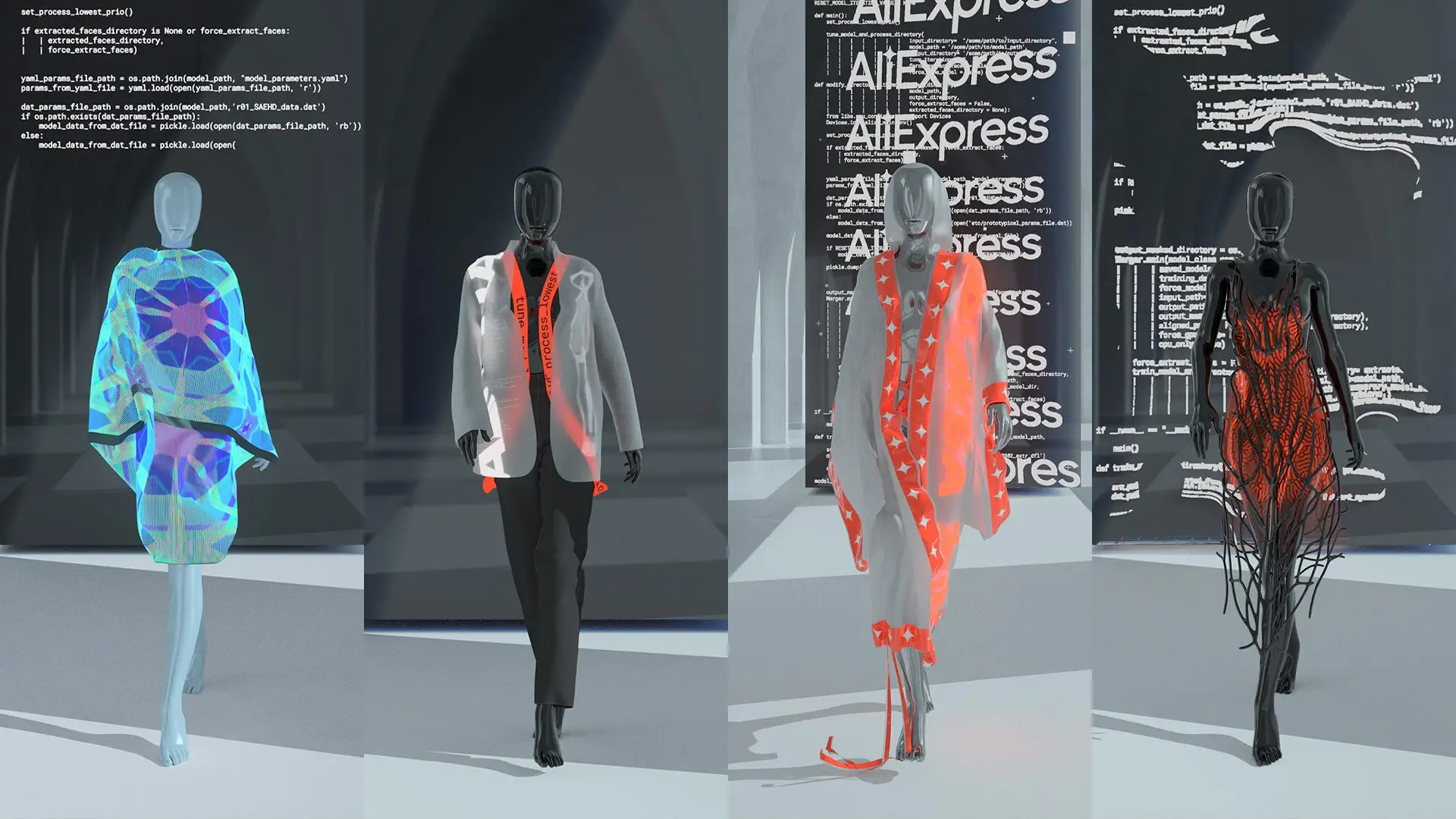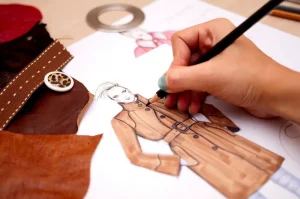I. Introduction to Fashion Designing Courses
Overview of Fashion Designing Courses: Fashion designing courses encompass a broad range of educational programs aimed at nurturing creative talents and skills necessary for success in the fashion industry. These courses cover various aspects of design, garment construction, textiles, styling, and fashion business management.
Importance of Fashion Education in Today’s Industry: In a highly competitive and dynamic industry like fashion, formal education plays a crucial role in honing skills, fostering creativity, and providing a comprehensive understanding of industry trends and practices. Fashion designing courses offer structured curriculum, expert guidance, and practical experience essential for aspiring fashion professionals.
Introduction to Anna College, Madurai: Anna College, located in the vibrant city of Madurai, is renowned for its excellence in fashion education. With state-of-the-art facilities, experienced faculty, and industry partnerships, Anna College offers a conducive environment for students to explore their creative potential and excel in the world of fashion.
II. Understanding the Fashion Industry
Evolution of Fashion Designing: The fashion industry has evolved significantly over the years, influenced by cultural, social, and technological changes. From traditional craftsmanship to modern techniques, the evolution of fashion designing reflects shifts in aesthetic preferences, consumer behavior, and global trends.
Current Trends and Innovations: Fashion is inherently dynamic, with trends constantly evolving to reflect changing tastes and preferences. Innovations in technology, sustainability, and inclusivity are shaping the future of fashion, influencing design processes, materials, and production methods.
Role of Fashion Designers in Shaping Culture: Fashion designers play a pivotal role in shaping cultural narratives, challenging conventions, and expressing social commentary through their creations. Their designs have the power to influence perceptions, ignite conversations, and drive societal change.
III. Types of Fashion Designing Courses
Bachelor’s Degree Programs: Bachelor’s degree programs in fashion design offer comprehensive education encompassing design principles, garment construction, textile studies, and fashion business management.
Diploma Courses: Diploma courses provide focused training in specific areas of fashion design, offering practical skills and industry insights essential for entry-level positions.
Certificate Programs: Certificate programs are short-term courses designed to provide specialized training in niche areas of fashion design, catering to individuals seeking quick skill enhancement or career advancement.
Online Learning Opportunities: Online fashion designing courses offer flexibility and convenience, allowing students to pursue education remotely while balancing other commitments.
IV. Curriculum Overview
Core Subjects and Specializations Offered: Fashion designing courses cover a wide range of subjects, including design theory, fashion illustration, pattern making, draping, and CAD software training. Specializations may include fashion merchandising, textile design, and sustainable fashion.
Practical Training Modules: Practical training modules provide hands-on experience in garment construction, fabric manipulation, and fashion styling, allowing students to apply theoretical knowledge in real-world settings.
Industry-Relevant Projects and Assignments: Industry-oriented projects and assignments challenge students to think creatively, solve problems, and collaborate with peers, preparing them for the demands of the fashion industry.
V. Benefits of Pursuing Fashion Designing Courses
Skill Enhancement and Development: Fashion designing courses enhance creativity, technical skills, and critical thinking abilities, equipping students with the expertise needed to succeed in a competitive industry.
Career Opportunities and Growth Potential: Graduates of fashion designing courses have access to diverse career opportunities in areas such as fashion design, merchandising, styling, retail management, and entrepreneurship.
Networking and Industry Exposure: Fashion designing courses provide opportunities for networking with industry professionals, attending fashion events, and gaining firsthand experience through internships, fostering valuable connections and industry exposure.
VI. Admission Process at Anna College, Madurai
Eligibility Criteria: Admission to fashion designing courses at Anna College, Madurai, typically requires a high school diploma or equivalent qualification. Additional requirements may include a portfolio of creative work and proficiency in design-related subjects.
Application Procedure: Prospective students can apply for admission through the college’s online portal or by submitting a physical application form along with required documents.
Admission Requirements and Deadlines: Applicants must meet specified admission requirements and adhere to application deadlines set by the college. It is essential to carefully review the admission guidelines and submit all necessary documents within the stipulated timeframe.
VII. Faculty and Facilities
Introduction to the Faculty: Anna College, Madurai, boasts a team of experienced faculty members comprising industry professionals, academicians, and renowned designers. These faculty members bring a wealth of knowledge and expertise to the classroom, guiding students towards academic excellence and creative achievement.
State-of-the-Art Facilities and Resources: Anna College offers state-of-the-art facilities, including design studios, computer labs, sewing workshops, and libraries stocked with a vast collection of fashion-related literature and resources.
Student Support Services: The college provides comprehensive student support services, including academic advising, career counseling, and extracurricular activities, ensuring a holistic learning experience for students.
VIII. Choosing the Right Course
Factors to Consider When Selecting a Course: When choosing a fashion designing course, factors to consider include the curriculum structure, faculty expertise, industry collaborations, placement opportunities, and overall reputation of the institution.
Tailoring Your Course to Your Career Goals: It is essential to align the course curriculum with your career goals and aspirations, opting for specializations or elective courses that complement your interests and strengths.
Understanding the Course Structure and Syllabus: Thoroughly reviewing the course structure, syllabus, and learning outcomes can provide insights into the depth and breadth of the program, helping you make an informed decision.
IX. Student Life at Anna College, Madurai
Campus Culture and Atmosphere: Anna College, Madurai, offers a vibrant and inclusive campus culture, fostering creativity, collaboration, and cultural exchange among students from diverse backgrounds.
Extracurricular Activities and Events: The college organizes a variety of extracurricular activities, including fashion shows, design competitions, workshops, and cultural events, providing students with opportunities to showcase their talents and explore their interests beyond the classroom.
Student Testimonials and Experiences: Hear firsthand experiences and testimonials from current and former students about their journey at Anna College, Madurai, and how it has shaped their careers and aspirations in the fashion industry.
X. Financing Your Education
Tuition Fees and Expenses: Understand the tuition fees, registration fees, and additional expenses associated with pursuing a fashion designing course at Anna College, Madurai, and plan your finances accordingly.
Scholarships and Financial Aid Options: Explore scholarship opportunities, grants, and financial aid programs available to eligible students to alleviate the financial burden of tuition fees and support academic pursuits.
Budgeting Tips for Students: Learn practical budgeting tips and financial management strategies to effectively manage expenses while pursuing your education at Anna College, Madurai.
XI. Industry Internships and Placements
Importance of Internships in Fashion Education: Internships provide invaluable hands-on experience, exposure to industry practices, and networking opportunities crucial for career advancement in the fashion industry.
Industry Partnerships and Placement Opportunities: Anna College, Madurai, has established partnerships with leading fashion houses, design firms, and retail brands, offering students access to internship and placement opportunities with reputable organizations.
Success Stories of Alumni: Discover success stories of alumni who have leveraged their education at Anna College, Madurai, to secure prominent positions in the fashion industry and make meaningful contributions to the field.
XII. Building a Portfolio
Importance of a Strong Portfolio in the Fashion Industry: A strong portfolio is essential for showcasing your creativity, skills, and design aesthetics to potential employers and clients in the fashion industry. It serves as a visual representation of your talent and capabilities, leaving a lasting impression on recruiters and collaborators.
Tips for Creating an Impressive Portfolio: Learn effective strategies for curating and presenting your portfolio, including selecting your best work, organizing content logically, incorporating diverse projects, and highlighting your unique style and strengths.
Showcasing Your Work: Explore various platforms and mediums for showcasing your portfolio, such as online portfolios, physical portfolios, social media platforms, and industry events. Tailor your portfolio presentation to align with your target audience and career objectives.
XIII. Industry Insights and Guest Lectures
Guest Lectures by Industry Experts: Anna College, Madurai, regularly invites industry experts, renowned designers, and fashion professionals to conduct guest lectures, share insights, and offer valuable perspectives on emerging trends and best practices in the fashion industry.
Workshops and Seminars: Attend workshops, seminars, and masterclasses organized by Anna College, Madurai, to gain practical knowledge, refine your skills, and stay updated on the latest developments in fashion design, technology, sustainability, and business.
Opportunities for Networking and Collaboration: Engage in networking opportunities, collaborative projects, and industry events facilitated by Anna College, Madurai, to build connections, forge partnerships, and expand your professional network within the fashion community.
XIV. Specialization Options
Fashion Design: Delve into the creative process of fashion design, exploring concept development, sketching, pattern making, garment construction, and runway presentation techniques.
Textile Design: Learn the art and science of textile design, including fabric manipulation, surface ornamentation, dyeing, printing, and weaving, to create innovative and sustainable textiles for fashion and interiors.
Fashion Merchandising and Marketing: Gain expertise in fashion merchandising, retail buying, brand management, and marketing strategies, understanding consumer behavior, market trends, and retail dynamics in the fashion industry.
Fashion Technology and Innovation: Explore the intersection of fashion and technology, experimenting with digital design tools, wearable technology, 3D printing, and sustainable materials to push the boundaries of creativity and innovation in fashion.
XV. Research and Innovation in Fashion
Research Initiatives at Anna College, Madurai: Discover ongoing research projects, collaborations, and initiatives at Anna College, Madurai, focused on advancing knowledge, innovation, and sustainability in the field of fashion design and technology.
Innovation Labs and Facilities: Explore state-of-the-art innovation labs, research facilities, and technology-driven initiatives at Anna College, Madurai, equipped with cutting-edge tools and resources to support experimentation and prototyping in fashion design.
Collaboration with Industry Partners: Learn about collaborative research projects and partnerships between Anna College, Madurai, and industry stakeholders, fostering interdisciplinary collaboration, knowledge exchange, and applied research in fashion.
XVI. International Exchange Programs
Opportunities for Studying Abroad: Explore opportunities for international study exchanges, semester abroad programs, and cultural immersion experiences offered by Anna College, Madurai, in collaboration with partner institutions worldwide.
Exchange Programs with Partner Institutions: Participate in exchange programs and student mobility initiatives that allow you to study abroad, gain global perspectives, and immerse yourself in different cultures, enhancing your academic and personal growth.
Global Exposure and Cultural Exchange: Experience the richness of global diversity, expand your horizons, and develop cross-cultural competencies through international exchange programs facilitated by Anna College, Madurai.
XVII. Alumni Success Stories
Profiles of Successful Alumni: Discover inspiring stories of alumni who have graduated from Anna College, Madurai, and gone on to achieve remarkable success in the fashion industry, carving out distinctive career paths and making significant contributions to the field.
Career Paths and Achievements: Explore diverse career paths pursued by alumni, including fashion design, entrepreneurship, retail management, sustainable fashion advocacy, and fashion technology innovation, highlighting their achievements and milestones.
Impact of Fashion Education at Anna College, Madurai: Learn about the transformative impact of fashion education at Anna College, Madurai, on alumni careers, personal growth, and professional development, reflecting the college’s commitment to nurturing future fashion leaders.
XVIII. Conclusion: Empowering Future Fashion Leaders
Summary of Key Points: Recapitulate key insights, highlights, and takeaways from the article, providing a concise summary of the comprehensive guide to fashion designing courses at Anna College, Madurai.
Encouragement for Aspiring Fashion Designers: Offer words of encouragement and motivation to aspiring fashion designers, emphasizing the importance of passion, perseverance, and dedication in pursuing their dreams and aspirations in the fashion industry.
Invitation to Join Anna College, Madurai: Extend a warm invitation to prospective students to embark on their fashion journey at Anna College, Madurai, inviting them to explore the college’s offerings, facilities, and opportunities for academic and creative excellence.
XIX. Frequently Asked Questions (FAQs)
Common Questions About Fashion Designing Courses: Address frequently asked questions and queries related to fashion designing courses at Anna College, Madurai, providing detailed and informative answers to help prospective students make informed decisions.
Answers Provided to Address Queries: Cover a range of topics, including admission process, course curriculum, faculty expertise, facilities, placement opportunities, financial aid, and student life, addressing common concerns and uncertainties faced by prospective students.
XX. Additional Resources and Contact Information
Links to Relevant Websites and Resources: Provide links to relevant websites, online resources, and additional reading materials for further exploration and research on fashion designing courses, industry trends, and related topics.
Contact Details for Further Inquiries: Share contact information for Anna College, Madurai, including phone numbers, email addresses, and office locations, enabling prospective students to reach out for additional information, assistance, or inquiries.
This comprehensive guide offers a detailed overview of fashion designing courses at Anna College, Madurai, covering key aspects such as curriculum, faculty, facilities, admission process, student life, industry opportunities, and alumni success stories. Whether you’re a prospective student, an aspiring fashion designer, or simply curious about fashion education, this guide serves as a valuable resource for understanding and exploring the dynamic world of fashion design.
Which is the best course in fashion designing?
- Answer: Fashion designing encompasses various courses such as Bachelor of Design (BDes), BSc in Fashion Design, and Fashion Merchandising. The best course depends on individual preferences, career goals, and the reputation of the institution.
How to become a fashion designer after 12th?
- Answer: After completing 12th grade, students can pursue bachelor’s and master’s degree programs in fashion design. A minimum of 50% on the 10+2 exam is generally required for admission to these courses.
What are the subjects in fashion designing?
- Answer: Subjects typically include design, pattern making, illustration, history of costumes, clothing construction, textile science, and surface ornamentation.
What courses do you need for Fashion Design?
- Answer: Most fashion designers hold an art and design bachelor’s degree, where they study fabrics, fashion theory, color theory, and learn how to create styles using computer-aided design (CAD) software.
What is the entrance exam for fashion?
- Answer: The National Institute of Fashion Technology (NIFT) conducts the entrance exam for fashion design courses. It is held annually, usually in February, and is taken by thousands of students aiming for admission to undergraduate and postgraduate programs.
Is fashion designer a good career?
- Answer: Fashion designing offers a rewarding career path for those with creativity and a passion for design. It provides opportunities for artistic expression, professional growth, and financial success.
Is 12th marks important for fashion designing?
- Answer: While good academic performance in 12th grade can enhance your chances of admission, creativity, talent, and a strong portfolio are equally important for success in fashion designing.
What is the minimum qualification for fashion designing?
- Answer: The minimum qualification typically required for fashion designing courses is a high school diploma or equivalent qualification.
What is the fee structure of NIFT?
- Answer: The fee structure of the National Institute of Fashion Technology (NIFT) varies depending on the course and category of the student. Detailed fee information is available on the official NIFT website.
What is the salary of a fashion designer in India?
- Answer: Fashion designers in India can earn varying salaries depending on factors such as experience, skills, employer, and location. Entry-level salaries typically range from ₹3-5 lakhs per annum, while experienced designers can earn significantly higher salaries.




